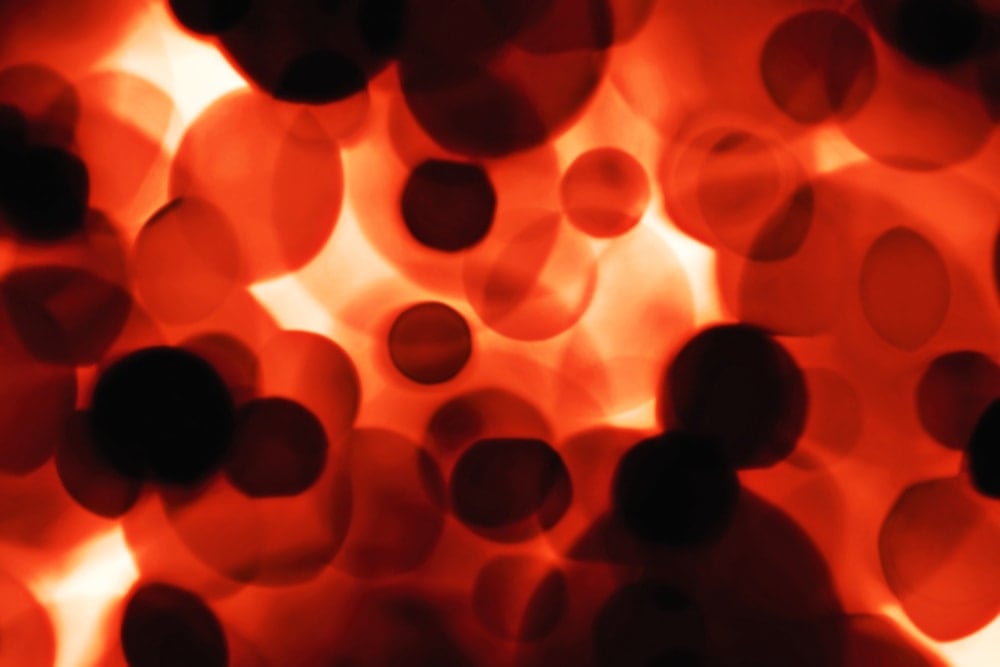Anemia is a medical condition in which there are not enough healthy red blood cells to carry oxygen to the tissues in the body. When the tissues do not receive an adequate amount of oxygen, many organs and functions are affected. Anemia during pregnancy is especially a concern because it is associated with low birth weight, premature birth, and maternal mortality.
Women who are pregnant are at a higher risk for developing anemia due to the excess amount of blood the body produces to help provide nutrients for the baby. Anemia during pregnancy can be a mild condition and easily treated if caught early on. However, it can become dangerous, to both the mother and the baby, if it goes untreated.
Types of anemia during pregnancy
There are over 400 different types of anemia, but some are more prevalent in pregnancy.
The most commonly experienced types of anemia during pregnancy are:
Iron-deficiency anemia
This is the leading cause of anemia in the United States, and consequently, the most common type of anemia during pregnancy. Approximately 15% to 25% of all pregnancies experience iron deficiency. Iron is a mineral found in the red blood cells and is used to carry oxygen from the lungs to the rest of the body, as well as helps the muscles store and use oxygen. When too little iron is produced, the body can become fatigued and have a lowered resistance to infection. Learn more about how to treat iron deficiency naturally during your pregnancy.
Folate-deficiency anemia
Folate refers to Folic Acid, which is a water-soluble vitamin that can help prevent neural tube defects during pregnancy. Folic Acid is a common supplement taken by pregnant women, but it can also be found in fortified foods such as cereals, leafy vegetables, bananas, melons, and legumes. A diet lacking folic acid can lead to a reduced number of red blood cells in the body, therefore leading to a deficiency.
Vitamin B12 deficiency anemia
Vitamin B-12 is also a necessary vitamin for the body to have to help with the production of red blood cells. Although some women may consume enough B-12 in their diet, it is possible their body cannot process the vitamin, and this causes them to have the deficiency.
Causes of Anemia during Pregnancy
The cause of anemia truly comes down to how many red blood cells are being produced in the body and how healthy they are. A fall in hemoglobin levels during pregnancy is caused by a greater expansion of plasma volume compared with the increase in red cell volume. This disproportion between the rates of increase for, plasma and erythrocytes have the most distinction during the second trimester.
The following are ways red blood cells can be affected and lead to anemia:
- A lack of iron in the diet as a result of not eating enough iron-rich foods or the body’s inability to absorb the iron being consumed. Learn more about how to get iron naturally.
- Pregnancy itself because the iron being produced is needed for the woman’s body to increase her own blood volume. Without an iron supplement, there is not enough iron to feed the blood supply of the growing fetus.
- Heavy bleeding due to menstruation, an ulcer or polyp, or blood donation causes red blood cells to be destroyed faster than they can be replenished
Symptoms of anemia during pregnancy
Symptoms of anemia during pregnancy can be mild at first and often go unnoticed. However, as it progresses, the symptoms will worsen. It is also important to note that some symptoms can be due to a different cause other than anemia, so talking with your doctor is important.
Some common symptoms of anemia are:
- Weakness or fatigue
- Dizziness
- Shortness of breath
- Rapid or irregular heartbeat
- Chest Pain
- Pale skin, lips, and nails
- Cold hands and feet
- Trouble concentrating
Treatment for anemia during pregnancy
Anemia during pregnancy can easily be treated by adding iron or vitamin supplements to your daily routine. Typically, this is all that is needed to reverse the effects of anemia. However, in very rare cases, women with severe anemia may need a blood transfusion. Talk to your doctor about which supplements might be necessary for you.
Prevention of anemia during pregnancy
Preventing anemia during pregnancy is as easy as changing, or making additions, to your diet. Medical professionals recommend a pregnant woman eat 30 mg (at least three servings) of iron each day.
Examples of iron-rich foods are:
- Lean, red meats and poultry
- Eggs
- Dark, leafy green vegetables (such as broccoli, kale, and spinach)
- Nuts and seeds
- Beans, lentils, and tofu
Because it can be a challenge to eat as much iron as is suggested during pregnancy, taking iron supplements is recommended in addition to consuming these foods. Foods that are high in vitamin C can actually help the body absorb more iron, so it is beneficial to make these additions as well.
Vitamin C rich foods include:
- Citrus fruits and juices
- Strawberries
- Oranges
- Kiwis
- Tomatoes
- Bell peppers
After delivery, blood volume and plasma levels are expected to return to normal. This may take care of any anemia concerns that develop later in pregnancy. This should not keep pregnant women from seeking care for anemia during pregnancy.
Want to Know More?
Compiled using information from the following sources:
1. Mayo Clinic Guide to a Healthy Pregnancy, New York, NY: HarperCollins Publishers Inc.
2. Obstetrics and Gynecology: The Essentials of Clinical Care. New York, NY Times New York
3. Danforth’s Obstetrics and Gynecology Ninth Ed. Scott, James et al., Ch. 17.
4. Williams Obstetrics Twenty–Second Ed. Cunningham, F. Gary, et al, Ch. 51.






